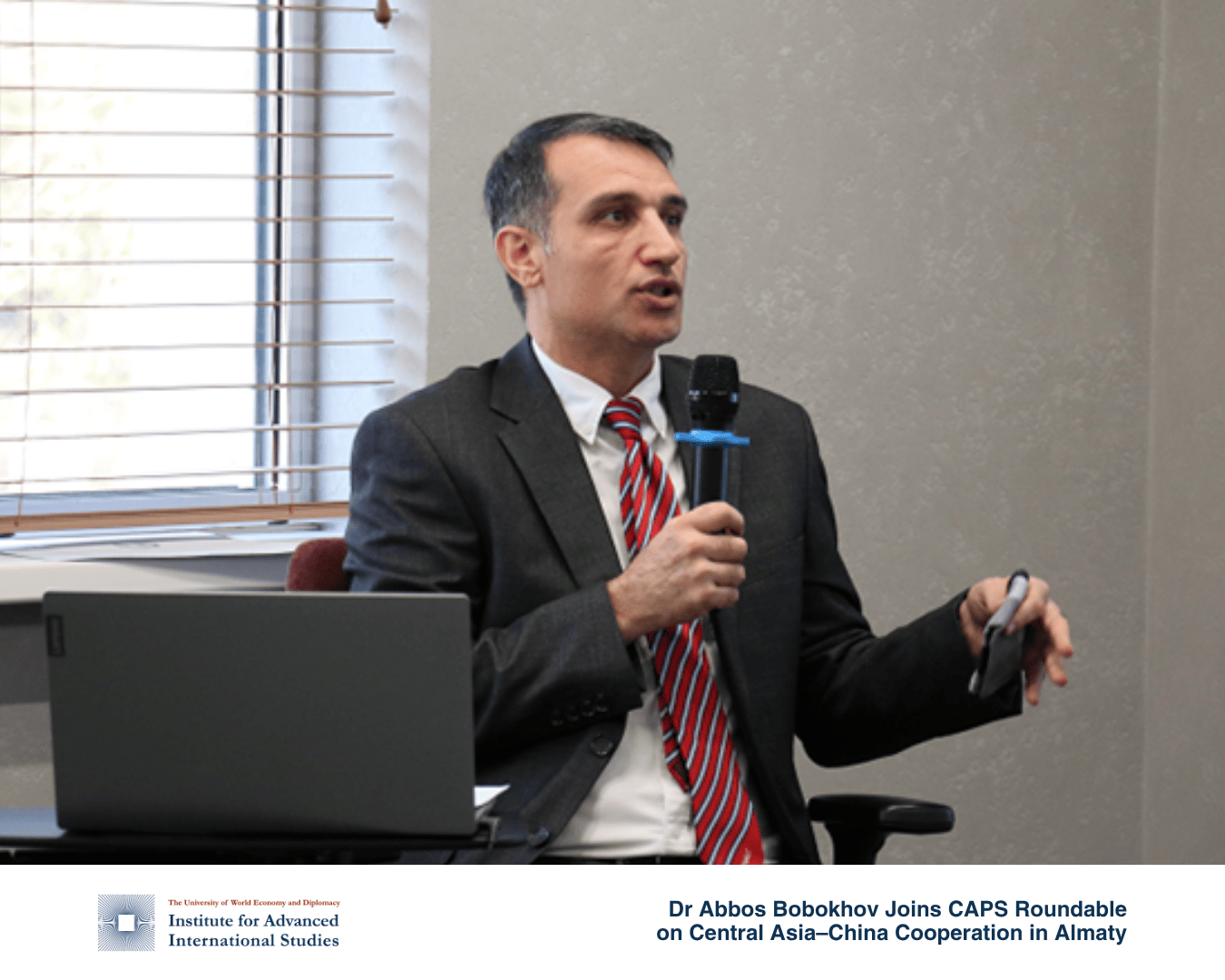
Dr Abbos Bobokhonov, Head of the Center for Asia-Pacific Studies at IAIS, took part in the CAPS Roundtable: “Central Asia–China Cooperation”, held on 10–11 November 2025 in Almaty and organized by CAPS Unlock. The event brought together representatives of leading think tanks and universities from the United Kingdom, Canada, Kazakhstan, Kyrgyzstan, Tajikistan, and Uzbekistan, as well as regional researchers working at foreign universities and international scholars based in Central Asia. Its key objective was to bridge academic research with policy discussions and to foster ties between younger and more experienced experts across the region.
Within the program, Dr Bobokhonov served as Chair of Session on “Technology and IT – Digital Futures and Regional Transformation”, which focused on the role of digitalization, technological cooperation and e-commerce in reshaping the landscape of Central Asia–China relations. The session explored issues such as the impact of Chinese digital platforms on the region’s e-commerce markets, opportunities and constraints in technological partnerships, and the broader implications of digital transformation for economic modernization in Central Asia.
Discussions throughout the roundtable highlighted a complex and often ambivalent regional perception of China’s growing presence. Many participants expressed concern about Beijing’s increasingly dominant role in Central Asia across politics, the economy, energy, technology, and industry, and pointed to the possibility that large-scale infrastructure and industrial investments may, over time, bring questions of protecting Chinese assets – and more broadly, China’s interests – onto the regional security agenda. Against this backdrop, experts underscored the importance for Central Asian states of preserving foreign policy independence, maintaining geopolitical neutrality in strategically sensitive areas and pursuing a balanced approach to attracting Chinese business, capital, labour and, in particular, technologies, while giving greater priority to diversifying external partners.
The roundtable also drew attention to intensifying competition between China and the United States over access to Central Asia’s critical minerals, as well as to differing models of resource development and investment risk between the two powers. The event concluded with a shared interest in turning the roundtable into a regular expert platform for in-depth discussion of the most pressing issues on the Central Asia–China agenda.